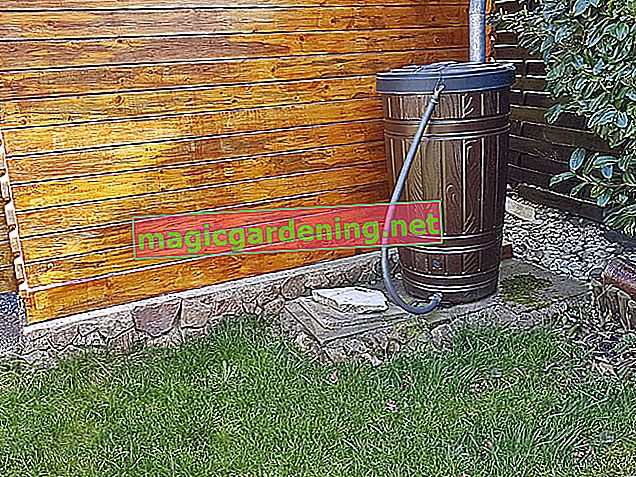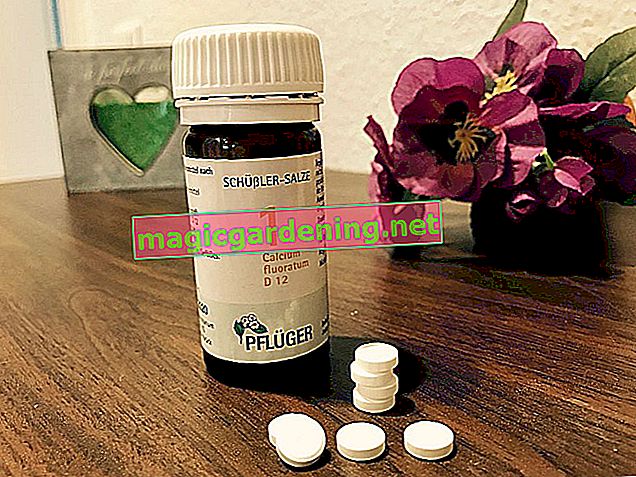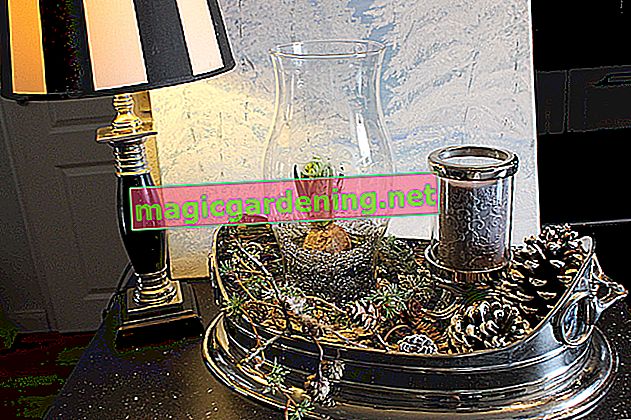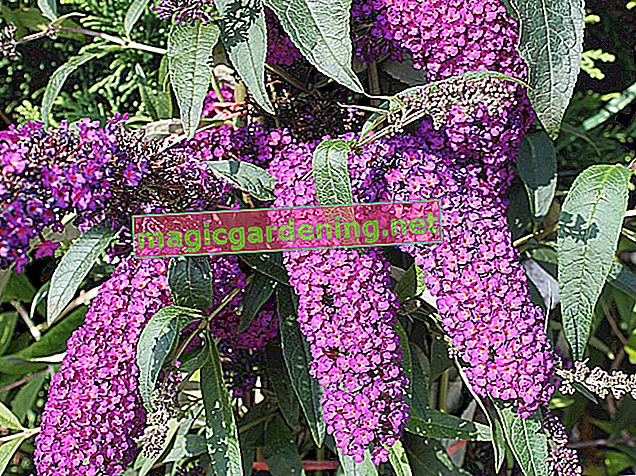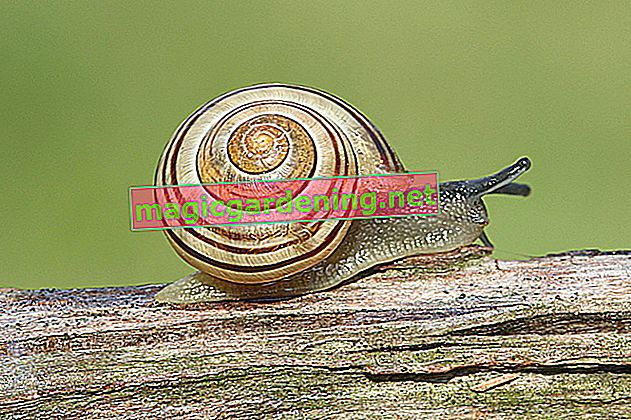
Defense strategies - how to keep nudibranchs out of the garden
Once slugs have found themselves on the property and laid their eggs, the only way to get rid of the snail plague is to take complex measures. By making your garden uninteresting for the pests, you ward off the beasts in advance. The focus is on dry, light-flooded conditions, because the nocturnal snails love it dark and humid. The following strategies have worked well in practice:
- The entire garden or individual beds with walking barriers are made of sharp stones
- Secure the area with a low-voltage electric snail fence
- Water primarily in the early morning hours so that the garden is dry in the evening
- Plant young plants with snail collars
also read
- The marigold, a natural helper against snails
- Fight snails on the hydrangea
- Why does moss work against snails? - Tips for use
When designing the garden, make sure that there are no dark, damp niches. Cut back shrubs and trees consistently so that the sunlight can penetrate into all regions. The finer the garden soil, the less attractive it is for snails and their brood. So rake and rake the soil regularly, even in mild winter.
Protecting aid from the animal kingdom - with beneficial insects against snails
Slug pellets (€ 16.78 at Amazon *) and other poison traps only work selectively and affect other living beings. In the naturally cultivated garden, the chemical club is therefore mothballed and the protection from the animal kingdom is trusted to fight snails. These beneficial insects fight a snail plague with a lot of perseverance and enthusiasm:
- Indian runner ducks in the garden dispense with all other measures to control slugs
- Let chickens roam free to eat the eggs and larvae
- Ground beetles like to eat the nudibranch brood
Other helpers from the animal kingdom are microscopic, which in no way affects their effectiveness against the snail plague. Nematodes of the genus Phasmarhabditis hermaphrodita are spread in the garden with a watering can in order to decompose slugs within a short time. In order for roundworms to meet expectations as a non-toxic control of snails, soil temperatures between 10 and 25 degrees Celsius are necessary, as well as the consistent avoidance of fertilizers with iron (II) sulfate.
Coffee grounds & Co. - deadly home remedies as a last resort
Under the high pressure of infestation from an escalating snail plague, various home remedies are available to rigorously combat slugs. The focus is on two methods which, despite the fact that they do not contain toxic ingredients, still have fatal effects.
Coffee grounds
Small amounts of caffeine are fatal to slugs. In order to use the home remedy correctly in combating snails, let the coffee grounds dry immediately after brewing. Then sprinkle the brown granules thinly on all infested areas. Please note that coffee grounds can lower the pH value in the soil. In addition, the home remedy should be refreshed after every downpour. Home gardeners who drink tea use dried tea leaves because tein has similar effects on slugs as caffeine.
Beer trap
The smell of beer magically attracts nudibranchs. You use this fact to construct a deadly trap. For this purpose, dig an old pickle jar or a comparable container into the bed up to the edge. Then fill stale beer halfway up. The approaching snails fall into the liquid and drown. The beer trap should always be used in combination with a snail fence so that the seductive scent does not lure all the snails from the area into your garden.
Liverwort spoils the appetite of snails
Don't you want to condemn hungry nudibranchs to death, but merely scorn them? Then mother nature has an effective remedy ready for you with moss, which thoroughly spoils the pests' appetite for your crops and ornamental plants. As green land plants, mosses do not have thorns, poisonous plant sap or bark to keep predators at bay. As a result, they give off a scent that snails can't stand. How to ward off a snail plague with liverwort:
- Dissolve liverwort extract in water according to the manufacturer's instructions
- Spray infested plants early in the morning or after sunset
- Against a snail plague, dose the natural remedy twice as high if necessary
As is common with all natural remedies, success only becomes apparent over time. You should therefore also use liverwort as a preventative measure on endangered plant species and seedlings. Experience has shown that plants treated with liverwort are not only spurned by slugs. Furthermore, fungal infections such as powdery mildew or gray mold can rarely be complained of on the plants.
Tips
If you are planting garden herbs, sage should not be missing in the planting plan. The valuable aromatic and medicinal plant exudes an intense scent that has been proven to deter an approaching horde of snails. By associating sage with lettuce, bluebells, chrysanthemums and sedum plants, the Mediterranean herb plant makes itself useful as a floral bodyguard against voracious nudibranchs.


